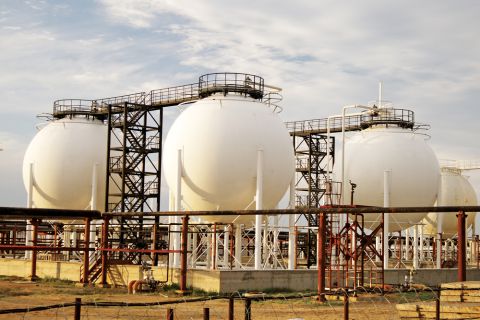ABU DHABI—OPEC is notorious for arguing over production policies—but Prince Abdulaziz bin Salman has effectively managed to deliver his first output cut just four days after becoming the new Saudi energy minister.
With an impending listing of state oil giant Saudi Aramco and rising Saudi budget needs, the issue of higher oil prices is looming large for Prince Abdulaziz.
But when he first met fellow Gulf oil ministers and OPEC officials this week, his first message wasn’t about oil prices.
Prince Abdulaziz said first and foremost he was keen to rebuild trust with oil neighbors Kuwait, the United Arab Emirates, Oman and other OPEC members, sources familiar with the meetings in Abu Dhabi said.
The prince, a veteran oil official and senior member of the Al Saud ruling family, is expected to deal with OPEC matters differently from his predecessor Khalid al-Falih, according to three sources, who were briefed on the discussions.
Falih had repeatedly upset other OPEC producers by forging deals with non-OPEC Russia first without discussing them with the kingdom’s Gulf OPEC allies, who traditionally cut or raised output together with Riyadh.
“The new minister likes decisions to be unanimous instead of being presented as just Saudi-Russian agreements,” one source told Reuters. “He wants us to be a united front.”
Within hours the strategy had paid out.
Iraq and Nigeria, two of OPEC’s members which were over-producing well above their OPEC targets, joined Prince Abdulaziz at the same news conference table after a joint committee meeting, known as the JMMC, to pledge swift production cuts.
As a result of their actions, OPEC’s output may drop further by around 400,000 barrels per day, or 0.4% of global supply, to help support oil prices at a time of rising fears of global economic recession and soaring U.S. production, two sources said.
“Acting in unity sends strong messages to the market and gives it greater confidence,” the prince said as he invited the Iraqi and Nigerian ministers to explain their next moves.
“My honorable colleague Minister Novak has wakened up to a new reality which is that we are not being too inclusive and we should have been,” said the Saudi minister, who was seated next to his Russian counterpart Alexander Novak.
Cards Close To His Chest
OPEC and its allies led by Russia, a group known as OPEC+, met on Sept. 12 in Abu Dhabi to discuss the market outlook ahead of a full OPEC+ ministerial meeting in Vienna in December.
On Sept. 11, Prince Abdulaziz met with Gulf oil ministers and senior OPEC officials where he delivered his message.
“He also stressed the importance of compliance by all countries—whether big or small,” the first source said.
Prince Abdulaziz, a son of the king and half-brother of Crown Prince Mohammed bin Salman, was named energy minister on Sept. 8. Known in the industry as a diplomatic negotiator, he has long experience of cutting OPEC deals.
But he also keeps his cards close to his chest.
In his first interactions with the media this week, he joked about being too direct, with an “excessively spontaneous” sense of humor and as a “kitchen and basement” man.
But he avoided predicting future OPEC policy and President Donald Trump moves against Iran, Riyadh’s arch rival.
“What we hear now is something, and what can happen is something else,” the prince said.
“I don’t want to go into details from the political aspect, I am as chair of the JMMC should take a neutral position that represents everyone.”
Recommended Reading
For Sale, Again: Oily Northern Midland’s HighPeak Energy
2024-03-08 - The E&P is looking to hitch a ride on heated, renewed Permian Basin M&A.
Gibson, SOGDC to Develop Oil, Gas Facilities at Industrial Park in Malaysia
2024-02-14 - Sabah Oil & Gas Development Corp. says its collaboration with Gibson Shipbrokers will unlock energy availability for domestic and international markets.
E&P Highlights: Feb. 16, 2024
2024-02-19 - From the mobile offshore production unit arriving at the Nong Yao Field offshore Thailand to approval for the Castorone vessel to resume operations, below is a compilation of the latest headlines in the E&P space.
E&P Highlights: Feb. 26, 2024
2024-02-26 - Here’s a roundup of the latest E&P headlines, including interest in some projects changing hands and new contract awards.
CEO: Continental Adds Midland Basin Acreage, Explores Woodford, Barnett
2024-04-11 - Continental Resources is adding leases in Midland and Ector counties, Texas, as the private E&P hunts for drilling locations to explore. Continental is also testing deeper Barnett and Woodford intervals across its Permian footprint, CEO Doug Lawler said in an exclusive interview.





